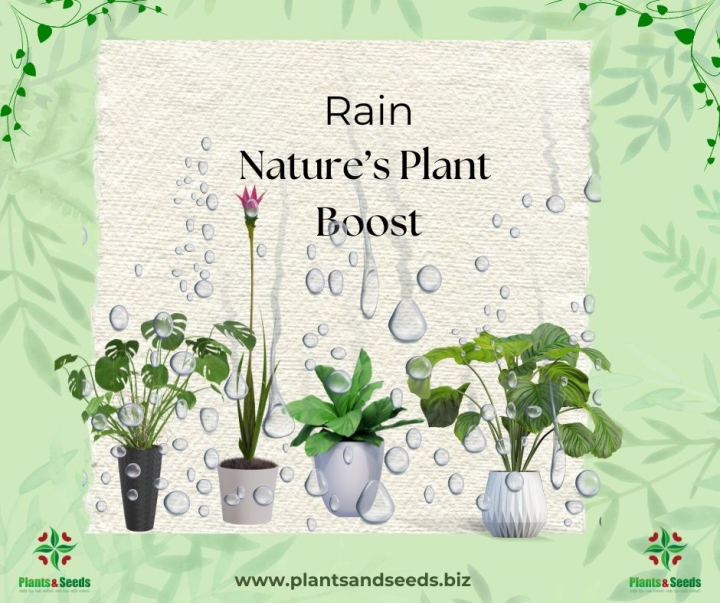Select your country
Rain: Nature’s Plant Boost
- 30 May 2024
- Written by : Gayathri Bandaranayaka
- Views : 678
- ID : #0057

Rain: Nature’s Plant Boost
Water, in the form of rain, is very useful for plants as it supplies the water that is needed in their growth processes. Water from rain falls on the ground and gets into the soil and from there it is easily delivered to the roots of the plants as opposed to using a bucket or a hose to water the plants. Deep watering is beneficial for the plant as it encourages the root system to grow deeper and stronger which in turn provide better anchorage and better nutrient uptake.
Rainwater does not contain any dissolved salts and chemicals which are commonly present in the piped water supply. This purity ensures that there is no accumulation of unwanted compounds in the soil that may be detrimental to the growth of plants. In particular, rainwater is full of nitrogen, which is an excellent nutrient for the growth of leaves and the overall state of the plant.
It also washes away the dust and pollutants on the leaves, enhancing the process of photosynthesis through rainfall. This natural cleansing will ensure that the plant is more likely to capture sunlight energy and therefore grow and produce food more efficiently.
In addition, it also helps in maintaining the balance of rainfall; it does not make the soil too dry and does not over-water the plants. This balance is very important for the normal functioning of plant roots and microorganisms in the soil, which play a critical role in nutrient cycling and the overall health of the soil.
In conclusion, rain is a helpful part of keeping plants healthy and growing well, as it not only offers hydration, but nutrients as well as other valued elements for the well-being of the plants.



